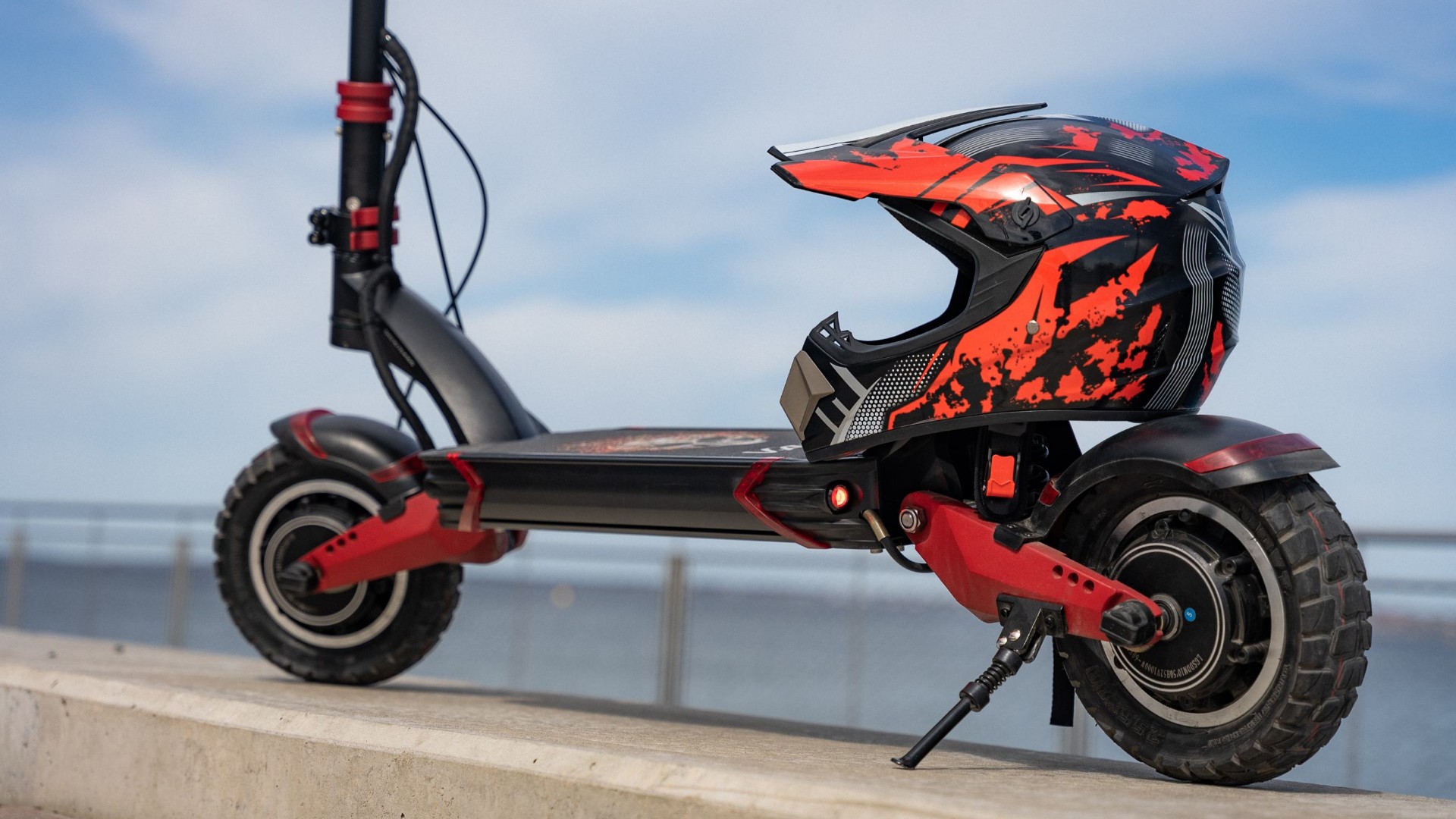Electric scooter laws in Europe vary widely, with each country implementing its own regulations and restrictions. Electric scooters are classified as either bicycles or motor vehicles, depending on factors such as speed and power.
Compliance with helmet usage, age restrictions, and speed limits is crucial, as some countries require specific permits or licenses for electric scooter operation. It is important for riders to familiarize themselves with the specific laws of the country they are in, as non-compliance may result in fines or other legal consequences.
Overall, understanding and abiding by local regulations ensures a safe and legally compliant electric scooter experience in Europe.
Understanding The Legal Landscape

Electric scooter laws in Europe vary across countries, making it important to understand the legal landscape.
Each country has its own set of regulations and requirements for riding an electric scooter. Before you embark on your e-scooter journey, it’s crucial to familiarize yourself with the specific rules in the country you plan to visit or reside in.
In some countries, there are age restrictions, speed limits, and helmet requirements, while in others, e-scooters might be banned altogether or restricted to certain areas.
Conducting a comparative analysis of e-scooter laws in popular European cities can provide valuable insights into the varying regulatory approaches.
This overview can help you ensure compliance and enjoy a safe and hassle-free electric scooter ride in Europe.
Key Regulations To Be Aware Of

Key regulations to be aware of when riding an electric scooter in Europe include maximum speeds and power limits.
Different countries impose age restrictions for riders, so it’s important to familiarize yourself with the specific rules in each location. Helmet usage is highly emphasized and safety equipment requirements may vary.
When planning to ride an electric scooter in Europe, it’s crucial to research and follow the laws and guidelines established by the respective countries. Adhering to these regulations ensures the safety of riders and promotes responsible use of electric scooters.
Stay informed and enjoy your electric scooter experience while abiding by the rules set forth by each European country.
Licensing And Insurance Requirements
Electric scooter laws in Europe vary when it comes to licensing and insurance requirements. Operating an electric scooter may or may not require a driving license, depending on the country.
Additionally, insurance obligations differ across Europe. Riders must be aware of their coverage for personal injury and property damage in case of accidents.
It is crucial to understand the specific regulations in each country to avoid legal issues and ensure adequate protection. Riding an electric scooter without appropriate licensing and insurance can lead to fines and potential legal consequences.
Always comply with the local laws and regulations to stay safe and enjoy the benefits of electric scooter transportation throughout Europe.

Identifying E-Scooter-Designated Areas
Electric scooter laws in Europe vary depending on the designated areas for e-scooter usage. These designated areas may include bike lanes and paths specifically allocated for electric scooters. However, it’s important to note that not all cities have dedicated infrastructure for scooters, making it crucial for riders to be aware of the rules and regulations specific to their location.
Some cities may have green zones or pedestrian-only areas where e-scooters are not allowed, and riders should familiarize themselves with such restrictions. By understanding and following the city-specific regulations, scooter riders can ensure a safe and legal experience while navigating European streets.
Best Practices For Riding Electric Scooters
Riding electric scooters in Europe requires following safety tips and guidelines to ensure a smooth and secure experience. Etiquette plays a crucial role when sharing the road with pedestrians, cyclists, and motorists, promoting harmony and safety for all. It is essential to be considerate and respect other road users.
Proper parking and docking of electric scooters are equally important to avoid obstruction and maintain order. By responsibly adhering to these best practices, riders can contribute to a safer and more enjoyable e-scooter experience for themselves and others. Europe’s electric scooter laws are designed to prioritize safety and convenience while reducing traffic congestion and carbon emissions.
So, buckle up, stay vigilant, and enjoy the convenience of electric scooters while adhering to the regulations in your area.
Potential Implications Of Breaking The Law

Electric scooter laws in Europe have serious implications for those who break them. Violating electric scooter regulations can result in penalties and fines. One such consequence is the legal ramifications of operating e-scooters under the influence of alcohol or drugs.
This not only puts the rider at risk but also endangers others on the road. Apart from legal consequences, breaking the law can have significant impacts on one’s personal and professional life. Fines and penalties can take a toll on finances and reputation, potentially affecting job prospects and relationships.
It is important for individuals to be aware of the laws and regulations surrounding electric scooters in order to avoid these potential consequences. By adhering to the rules, riders can stay safe and avoid the negative impacts associated with legal infractions.
Advocacy And Activism For E-Scooter Legislation
Electric scooter laws in Europe have become a focal point for advocacy and activism. Grassroots initiatives are working tirelessly to promote legislation reform. E-scooter companies also play a crucial role in advocating for favorable regulations. These companies actively engage with lawmakers and decision-makers to influence the development of legislation.
Success stories abound in the fight for legislation changes, but not without its fair share of challenges. Organizations pushing for reform face roadblocks and resistance from various stakeholders. Despite the hurdles, their determination persists, as they strive to create a safe and accessible environment for e-scooter users across Europe.
The impact of these advocacy efforts cannot be overstated, as they contribute to shaping the legal framework and ensuring responsible e-scooter use on the continent.
Navigating Future Developments In Europe
Navigating future developments in Europe requires a keen understanding of ongoing and upcoming legislative changes related to electric scooters. These changes have the potential to impact riders significantly. Technological advancements in the e-scooter industry have influenced regulations and policies, shaping the way these vehicles are used across Europe.
As we look ahead, it becomes crucial to consider future trends and predictions for the electric scooter industry on this continent. Keeping up with the evolving landscape will be essential for both scooter riders and policymakers alike. Europe’s electric scooter laws are continuously evolving, and staying informed about the latest developments will be key for anyone interested in this mode of transportation.
Frequently Asked Questions On Electric Scooter Laws In Europe
Can You Travel Internationally With Electric Scooter?
Yes, you can travel internationally with an electric scooter.
Is Electric Scooter Legal In Germany?
Yes, electric scooters are legal in Germany.
Is It Legal To Ride An Electric Scooter In France?
Yes, riding an electric scooter in France is legal as long as you follow the local regulations.
Is It Legal To Ride An Electric Scooter In Italy?
Yes, it is legal to ride an electric scooter in Italy.
Conclusion
Europe has seen a rapid increase in the popularity of electric scooters, leading to the need for clearer regulations. The variety of laws across European countries can be confusing for riders and rental companies alike. However, it is crucial to understand and adhere to the specific electric scooter laws in each country to ensure the safety of riders and pedestrians.
While some countries have embraced the use of electric scooters and have implemented regulations to support their usage, others have banned them entirely or only allow them in certain areas. It is important for riders to be aware of speed limits, designated bike lanes, and age restrictions, as well as any helmet requirements.
As the electric scooter market continues to grow, it is likely that further regulations will be put in place to manage their use on European streets. By staying informed and respecting the laws, riders can continue to enjoy the convenience and sustainability of electric scooters while ensuring safety for all.

